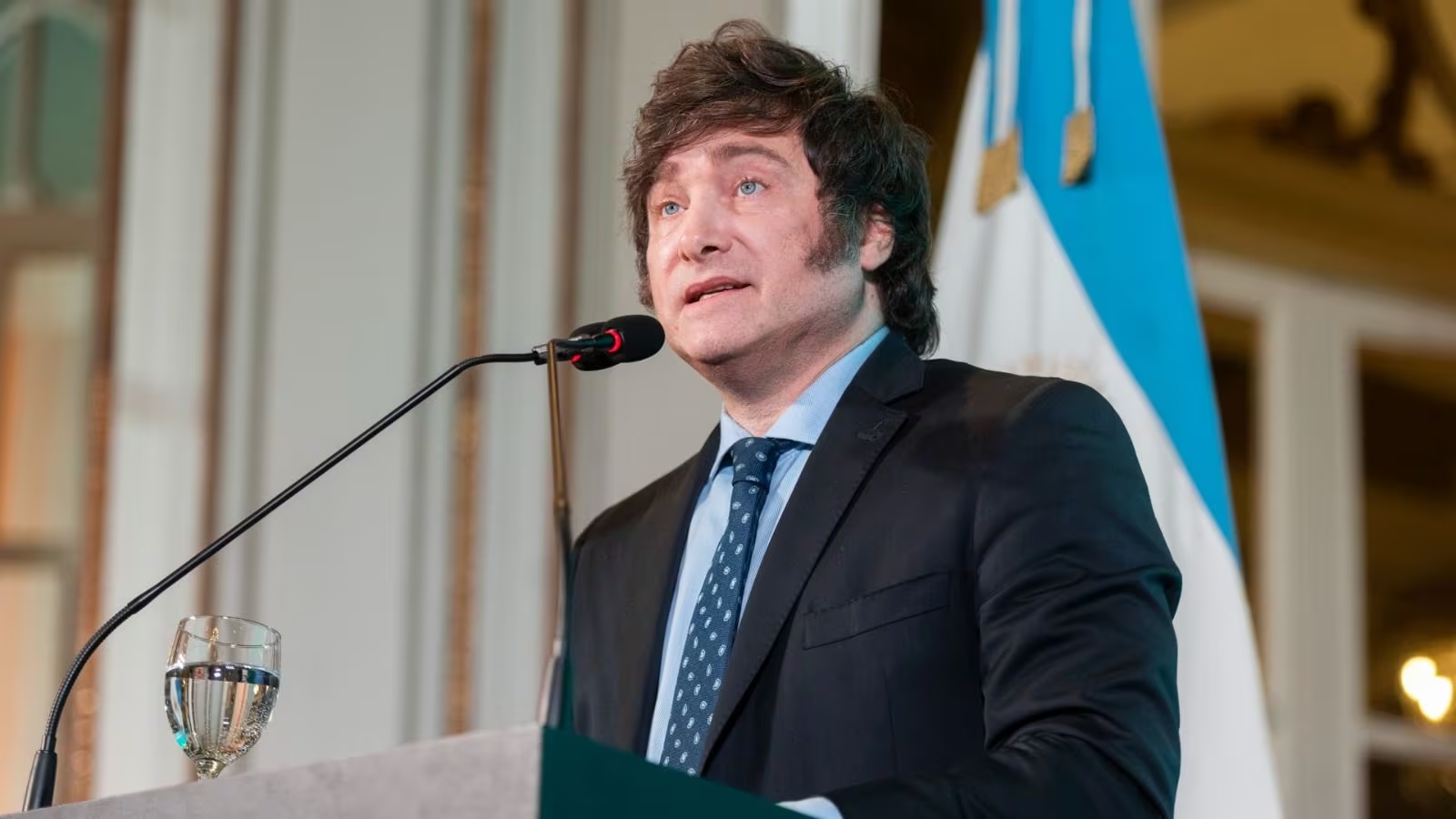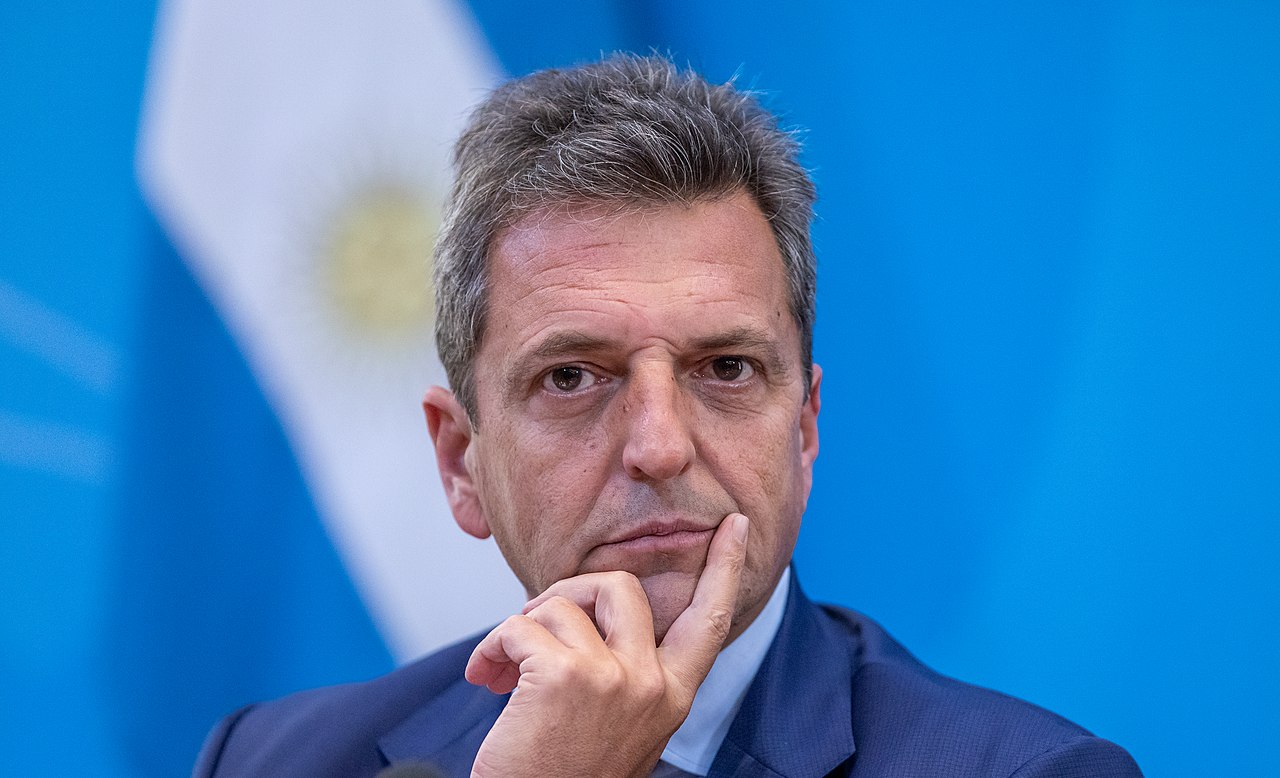
Far-right “libertarian” candidate Javier Milei has won the presidential run-off election in Argentina with almost 56 percent of the vote, beating Peronist candidate Massa (who got 44 percent), the country’s outgoing Finance Minister who had renewed a deal with the IMF and promised a government of national unity.
Milei’s win and particularly his margin of victory came as a surprise, as several opinion polls in the days before were predicting a much closer result or even a Massa victory. The victory of such a reactionary candidate, whose running mate Victoria Villaruel has openly defended army officers involved in crimes against humanity during the military dictatorship, has caused shock and dismay amongst many left-wing and working-class activists in Argentina and beyond. However, as communists, it is our task to understand the reasons why Milei won.
Failure of Peronism and Kirchnerism
In 2014, the right-wing Mauricio Macri was elected after years of Kirchnerist government (a form of left Peronism), which had benefited from economic stability and high commodity prices. Macri attempted an all-out assault on workers’ rights and pensions, which provoked mass, working-class opposition
There were huge protests against pension counter-reforms in Dec 2017 and then a general strike in Sept 2018. Macri could have been defeated by the mass movement, but the trade union bureaucracy and Peronist politicians managed to channel the anger into the electoral field.
In 2019, the government of Alberto Fernandez (Peronist) and Cristina Fernandez (Kirchnerist) was elected and Macri was soundly defeated. Turnout was 82 percent. However, this government, which millions of workers and poor had voted for in order to get rid of the anti-working class policies of Macri, did not solve any of the fundamental problems facing the Argentine economy. On the contrary, the situation got progressively worse. Inflation increased to the current figure of 140 percent, driven by the constant devaluation of the national currency. The percentage of those living under the poverty line nearly doubled to over 40 percent, including many of those who are in work.
Massa, the Peronist Finance Minister, renegotiated the Macri-era IMF loan. The new deal came with onerous conditions. The deep economic crisis and the realisation that, at the end of the day, “all politicians are the same”, led to a massive discrediting of all established political parties and institutions. This was the fertile soil in which the far-right “libertarian” demagogy of Milei flourished.
The judiciary was used to remove Vice-President Cristina Kirchner from the electoral race (and instead of fighting back, she acquiesced) and Massa became the new Peronist candidate. During his tenure living conditions had worsened significantly.

Wikimedia Commons
Enter Milei, a far-right maverick who presents himself as an anti-establishment candidate, appropriating the “que se vayan todos” (kick them all out) slogan of the 2001 Argentinazo rising. On this basis, he managed to come first in the compulsory open primaries (PASO) in August. The rise of Milei (who is the distilled essence of the worst aspects of Trump and Bolsonaro) reflects the crisis of the traditional bourgeois parties in Argentina (both right wing and Peronist), as well as the ruling class losing direct control over elected representatives.
As noted, defeated Massa had promised a government of national unity with the right wing, and also presented himself as a safe pair of hands to implement the monetarist shock therapy the ruling class needs. Once again, it has been shown that you cannot beat an anti-establishment candidate of the right (Trump, Bolsonaro) by opposing him with an establishment candidate of the centre (Clinton in the US, Haddad in Brazil etc.).
Massa and the Peronists also tried to play the “democracy vs. fascism” card, in order to mobilise workers and the poor to vote against Milei. That worked to a certain extent in the first round, giving Massa a pyrrhic victory. But it was not enough at a time when all democratic capitalist institutions are widely discredited.
Of course, for all his railing against the elite “caste” (la casta) Milei is no anti-establishment candidate, and has won the election with the support of key right-wing establishment politicians. The main leaders of the traditional bourgeois right wing, former president Macri and defeated presidential candidate Bullrich, threw their lot behind Milei for the run-off, in the hope of being able to play a decisive role in his eventual government.
Meanwhile, the most far-sighted capitalists and international capital favoured Massa, whom they considered more capable of carrying out the policy they need (namely, a harsh monetarist shock against the working class), because of the links his movement has with the trade union bureaucracy, through which they hoped he could keep the masses under control. They fear Milei’s brash approach could provoke a social explosion. They are not wrong.
Milei is a far-right politician whom we thoroughly reject. But we need to understand how he was able to come to power. The main responsibility lies in Peronism and particularly Kirchnerism. Workers voted for them to get rid of Macri, but what they got was a continuation of the same policies under a new administration.
Some responsibility also lies with the Argentinean left FIT-U, whose electoralist strategy rendered it unable to take advantage of the disillusionment with the Fernandez government. They become too focussed on winning a few extra votes and some additional deputies to the detriment of putting forward the only policy which would have connected with the accumulated anger: the overthrow of the system as a whole.
Fascism?
Milei is an extremely reactionary politician but he does not represent the coming to power of fascism, as some have been screaming about. Fascist gangs will be emboldened, but they do not represent a mass armed movement able to crush the working-class organisations. The Argentine working class has not been defeated. In fact, it has not yet entered the scene. It has potentially powerful organisations and longstanding, insurrectionary traditions, which it will certainly reclaim.

The ruling class will attempt to tame the most outlandish aspects of Milei using the fact that he has no control over either of the chambers and will need the support of the Macri-Bullrich deputies.
Milei has promised a massive cut in social spending, amounting to 15 percent of GDP (by, amongst other things, abolishing 10 out of the current 18 ministries); the lifting of all price and foreign exchange controls; the abolition of all subsidies; a programme of privatisation of healthcare, education and pensions; the privatisation of state-owned companies, etc. The ruling class fully agrees with such a programme, even though a section is concerned that Milei’s reckless application of it could backfire.
At the same time, he has vowed to “abolish the Central Bank” by dollarising the economy, and has railed against Brazil and China, which he described as having “Communist governments”. This, the capitalists are not so keen on. Brazil and China are the country’s two main trading partners. Argentina at the moment does not possess the necessary reserves to back dollarisation and does not have access to international funding.
Milei’s government will be riven with internal contradictions, facing a working class that has not been defeated and will certainly fight back in defence of what is left of their rights and conditions, acquired over decades of struggle. The period that opens up before us will be one of heightened class conflict.
The situation bears some resemblance to the crisis which faced Argentine capitalism at the end of the 1990s, which ended with the Argentinazo and the overthrow of several presidents in the space of a few weeks.
The task is to create a revolutionary leadership that can lead the working class to victory when the inevitable social explosion takes place.

